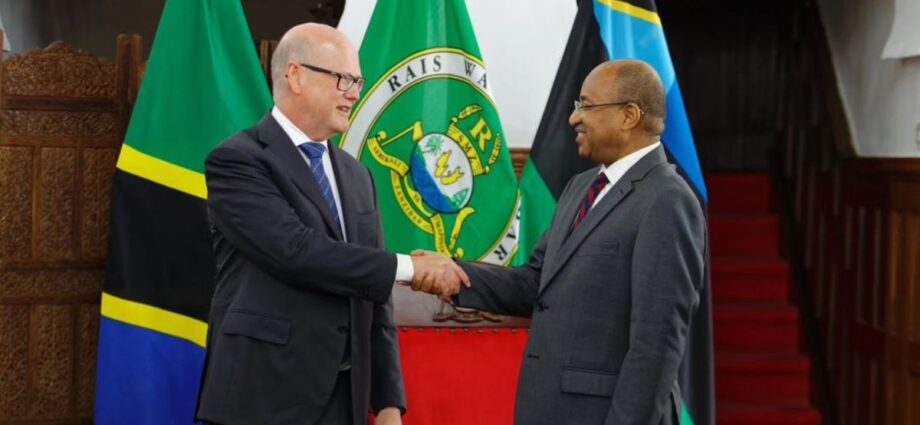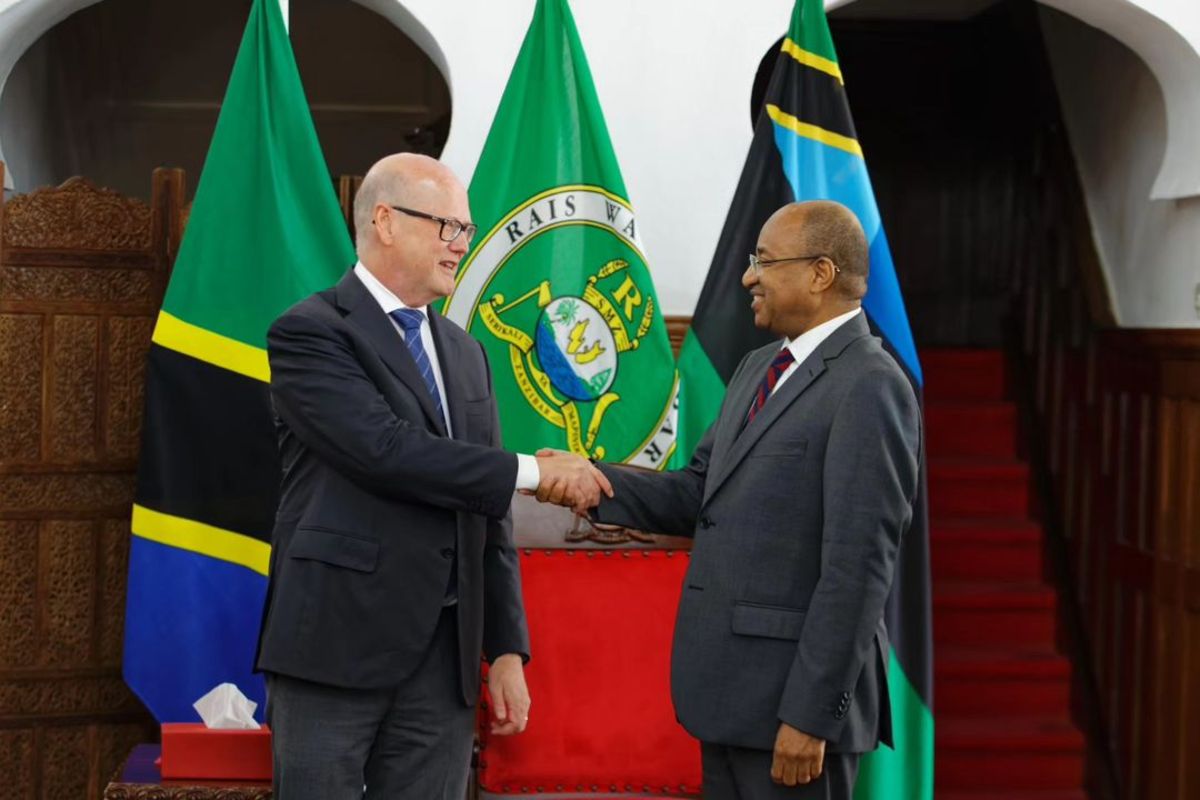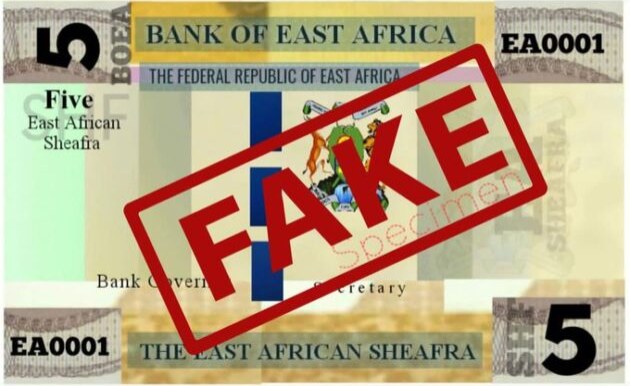Dar es Salaam.The President of Zanzibar and Chairman of the Revolutionary Council, Dr Hussein Ali Mwinyi, met with the Vice President of the European Investment Bank Thomas Ostros, and his delegation at the Mnazi Mmoja State House on July 4, 2024.
Mr Ostros is currently in Tanzania for an official visit, which includes engagements with President Samia and Zanzibar President Mwinyi, together with members of the private sector.
While in Zanzibar, Östros visited businesses that have received support in the blue economy in Zanzibar from EIB, with a focus on women and youth.
He is on a three-day visit that kicked off on July 3 and will highlight the impact of EIB engagement in the country and cooperation with Tanzanian, European, and international partners.
Mr Östros’s visit highlights the EIB’s ongoing commitment to supporting Tanzania’s economic development through strategic partnerships and targeted investments.
The visit is expected to provide an opportunity to take stock of EIB-supported projects with a particular focus on the green private sector, public infrastructure, gender-lens investing, and boosting the blue economy.
The project benefits include an overall increase in aviation safety as the five airports will comply with international safety and security standards.
The parties will also discuss potential support for other investments, such as the next phases of the Bus Rapid Transit system, phase two of the Lake Victoria Water and Sanitation Project, the Zanzibar Water Security Project, and the Tanga Plastic Waste Management Project.
These projects are all in different stages of evaluation. In addition, EIB VP Östros will meet with representatives of the leading banks in the country as well as some SME beneficiaries of EIB Global’s partnership with local commercial banks.
According to the statement issued to the public by EIB, last year, Tanzania was the largest recipient of EIB support in sub-Saharan Africa. It had €270 million of new investment to support businesses across the country.
“The country benefited from €270 million (Sh777 billion) of new investment to support businesses across Tanzania through partnerships with Tanzanian banks, namely CRDB, NMB, and KCB-Tanzania,” the statement reads.
The investment so far has facilitated lending to over 10,000 small- and medium-sized businesses, out of which over 3,000 are women-led enterprises and over 900 are blue-economy enterprises and cooperatives in Zanzibar.
The EIB’s focus on investing in high-potential sectors such as MSMEs in agriculture, green, and digital services aims to create sustainable jobs and boost economic growth in Tanzania.
Improved access to finance is very important for boosting growth and creating jobs for the millions of young Africans entering the workforce each year.
With the country’s economy growing by 5.2 percent in 2023, the EIB’s engagement is crucial in supporting private-sector development and fostering long-term economic resilience.
The EIB started its operations in Tanzania in 1977 and has since provided loans financing 36 projects, amounting to €680 million (nearly Sh2 trillion).















